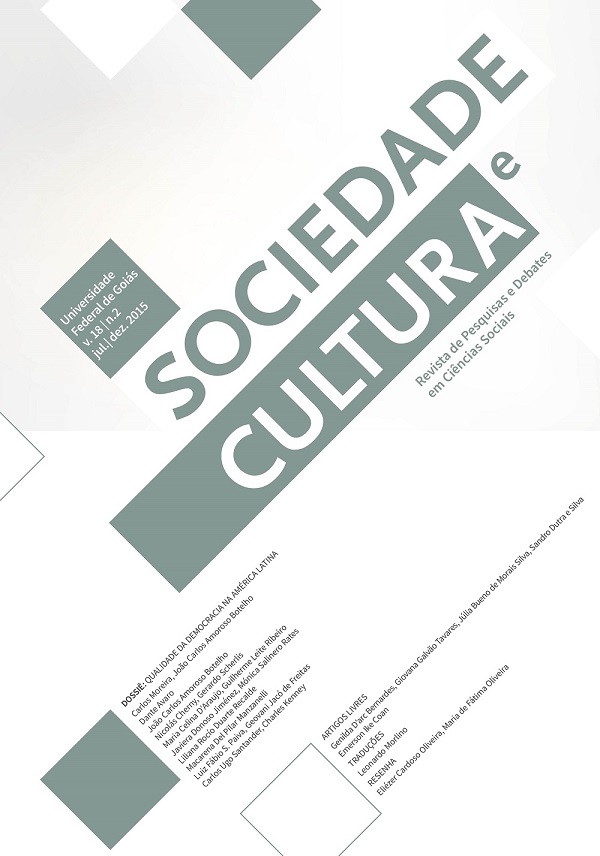Chile, una democracia represiva: ¿Herencia de la dictadura o tradición republicana?
DOI:
https://doi.org/10.5216/sec.v18i2.42376Abstract
A partir del año 2006 Chile se ha visto conmocionado en su tradicional orden socialcomo consecuencia de movilizaciones de diferentes sectores de la sociedad civil, quienes
a través de la protesta social (pacífica y violenta) exigían al Estado soluciones inmediatas
a sus demandas y necesidades. Estas protestas ciudadanas fueron reprimidas y criminalizadas
por los gobiernos democráticos, los cuales buscaban restaurar el orden institucional.
Estas acciones para encausar nuevamente la discusión de los problemas socio-políticos a
la arena política institucional pueden entenderse como estrategias represivas, en la medida
en que buscan eliminar a los actores/movimientos sociales de una discusión que ha
sido monopolizada por los actores políticos tradicionales durante los últimos 25 años. A
partir de lo anterior y dado lo reciente del actual régimen democrático en Chile surgen
interrogantes en torno a los orígenes de estas estrategias represivas de resolución de conflictos,
principalmente respecto a si éstas constituyen prácticas heredadas de la dictadura
militar de Augusto Pinochet o de una tradición republicana del Estado chileno.
Downloads
Download data is not yet available.
Downloads
Published
2016-08-01
How to Cite
JIMÉNEZ, Javiera Donoso; RATES, Mónica Salinero. Chile, una democracia represiva: ¿Herencia de la dictadura o tradición republicana?. Sociedade e Cultura, Goiânia, v. 18, n. 2, 2016. DOI: 10.5216/sec.v18i2.42376. Disponível em: https://revistas.ufg.br/fcs/article/view/42376. Acesso em: 18 feb. 2026.
Issue
Section
Thematic Dossier
License
Authors who publish in this journal agree to the following terms:
- Authors retain the copyright and grant the journal the right of first publication, the work being simultaneously licensed under the Creative Commons Attribution License, which allows the sharing of the work with acknowledgment of authorship and of the initial publication in this journal;
- Authors are authorized to enter into additional contracts separately, for non-exclusive distribution of the version of the work published in this journal (eg, publishing in an institutional repository or as a book chapter), with acknowledgment of authorship and of the initial publication in this journal;
- Authors are allowed and encouraged to post and distribute their work online (eg, in institutional repositories or on their personal page) at any point before or during the editorial process, as this can bring productive change as well as increases the impact and the citation of the published work (see O Efeito do Acesso Livre).



